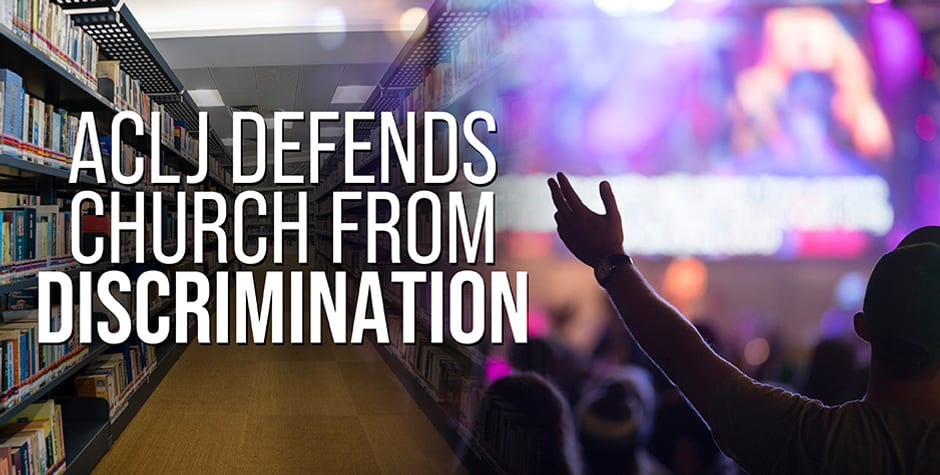ACLJ Steps In After Church Is Discriminated Against and Excluded From Using Public Library
Last week, the ACLJ was notified of a blatantly unconstitutional policy maintained by a public library that specifically excludes religious organizations from using its spaces and meeting rooms – while permitting non-religious nonprofit, governmental, and for-profit entities and educational institutions to use the areas. We’ve taken immediate action to remedy this violation.
We represent a small church of approximately 10 people in Miami-Dade County, Florida, that has been searching for a place to host its Sunday morning services or Wednesday night Bible studies. Upon learning that the library makes its meeting rooms and other spaces available for use by nonprofit entities, our client reached out to the library to inquire about availability on Sunday or Wednesday nights. The church was informed that it was banned from using the library’s spaces because it is sectarian or religious.
The policy – posted on the library’s website – provides as follows:
Miami-Dade Public Library System locations across the county offer a range of spaces and meeting rooms available for use by nonprofit, governmental, and for-profit entities and educational institutions. . . .
There are no fees or charges for use of our library spaces by nonprofit and governmental entities and educational institutions. . . .
Please note that library spaces may not be used for meetings or programs that involve partisan politics or sectarian/denominational religion. (emphasis added.)
The library’s unlawful policy is eerily similar to one that the ACLJ successfully challenged more than 30 years ago in Lamb’s Chapel v. Center Moriches Sch. Dist., 508 U.S. 384 (1993). In Lamb’s Chapel, the U.S. Supreme Court explained that the “government violates the First Amendment when it denies access to a speaker solely to suppress the point of view he espouses on an otherwise includible subject.” The Court ruled in our favor and held that a public school’s decision to exclude a church from using its meeting spaces to show a Christian film certainly violates the First Amendment.
As the Supreme Court has noted time and time again, “It is an elementary rule that the government may not exclude speech on the basis of its content from either a traditional public forum or a forum created by government designation, unless the exclusion is necessary to serve a compelling state interest which cannot be served by a less restrictive action.” Concerned Women for America Education & Legal Defense Foundation, Inc. v. Lafayette County, 883 F.2d 34-35 (5th Cir. 1989) (citing Cornelius v. NAACP Legal Defense & Educ. Fund, 473 U.S. 788, 803 (1985). Simply put, “The Constitution forbids a State to enforce certain exclusions from a forum generally open to the public, even if it was not required to create the forum in the first place.” Widmar v. Vincent, 454 U.S. 263, 268 (1981).
Repeatedly, courts have affirmed that these same principles apply to public libraries. When a public library makes its meeting room(s) available for use by the public, it creates a designated public forum or limited forum under the First Amendment and is prohibited from engaging in content or viewpoint discrimination. Citizens for Cmty. Values, Inc. v. Upper Arlington Pub. Library Bd. of Trs., 2008 U.S. Dist. LEXIS 85439, *23-24 (S.D. Ohio 2008); Concerned Women for America, Inc., v. Lafayette County, 883 F.2d 32, 34-35 (5th Cir. 1989); Faith Center Church Evangelistic Ministries, 480 F.3d 891, 910 (9th Cir. 2007); Pfeifer v. City of West Allis, 91 F.Supp.2d 1253 (E.D. Wisc. 2000).
The ACLJ has demanded that the Miami-Dade Public Library System amend its policy to remove the unlawful provision and allow our client to use the library facilities to host its weekly Bible studies. If the library refuses, the ACLJ is prepared to take the case to federal court.
